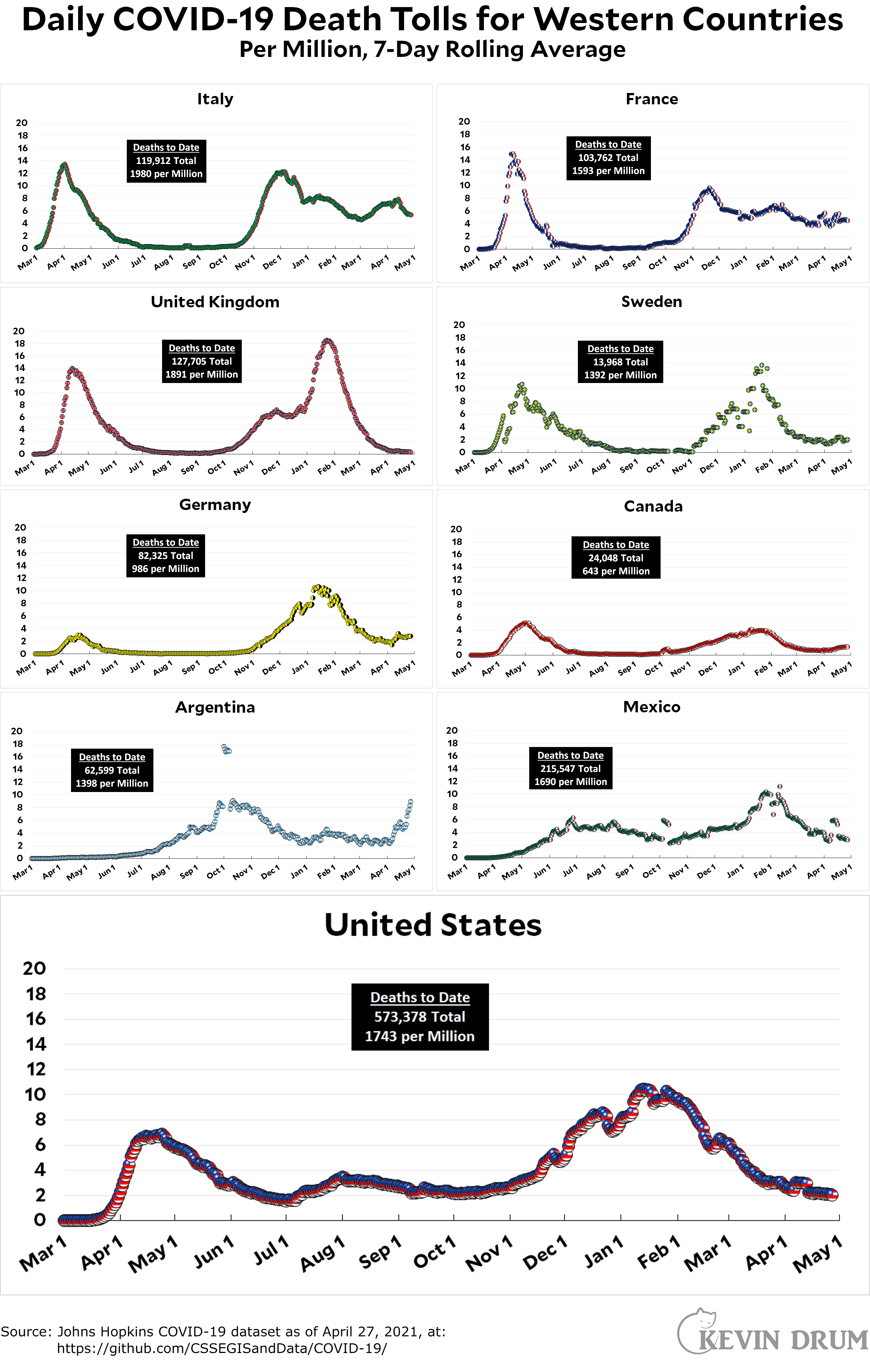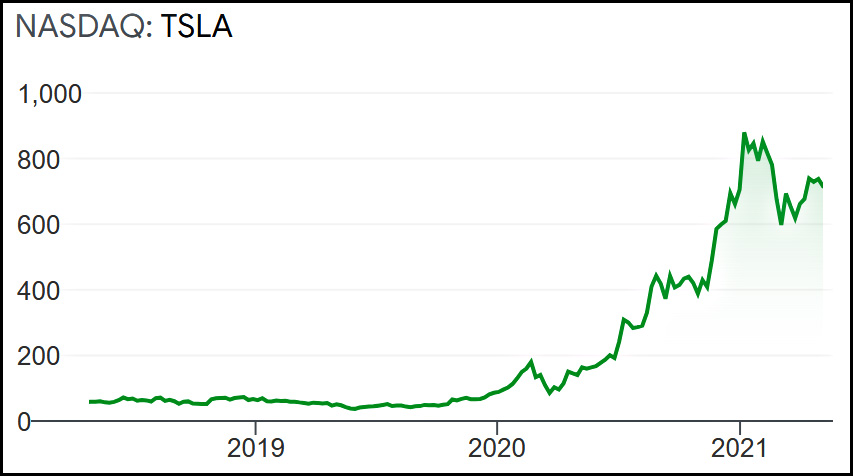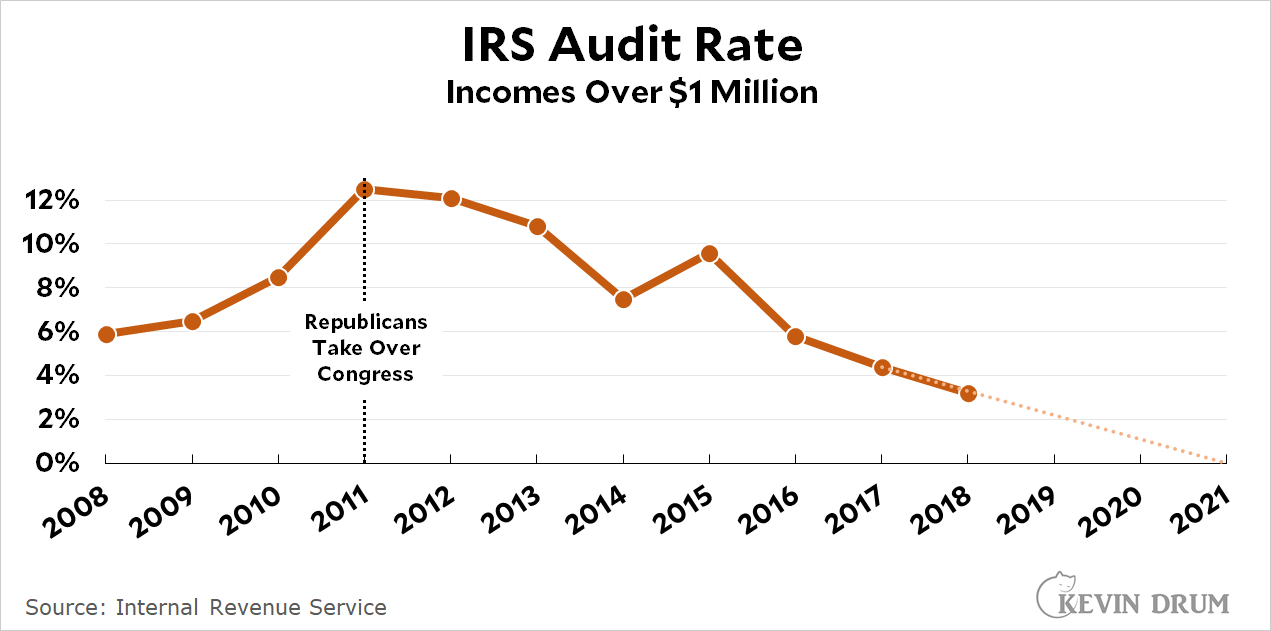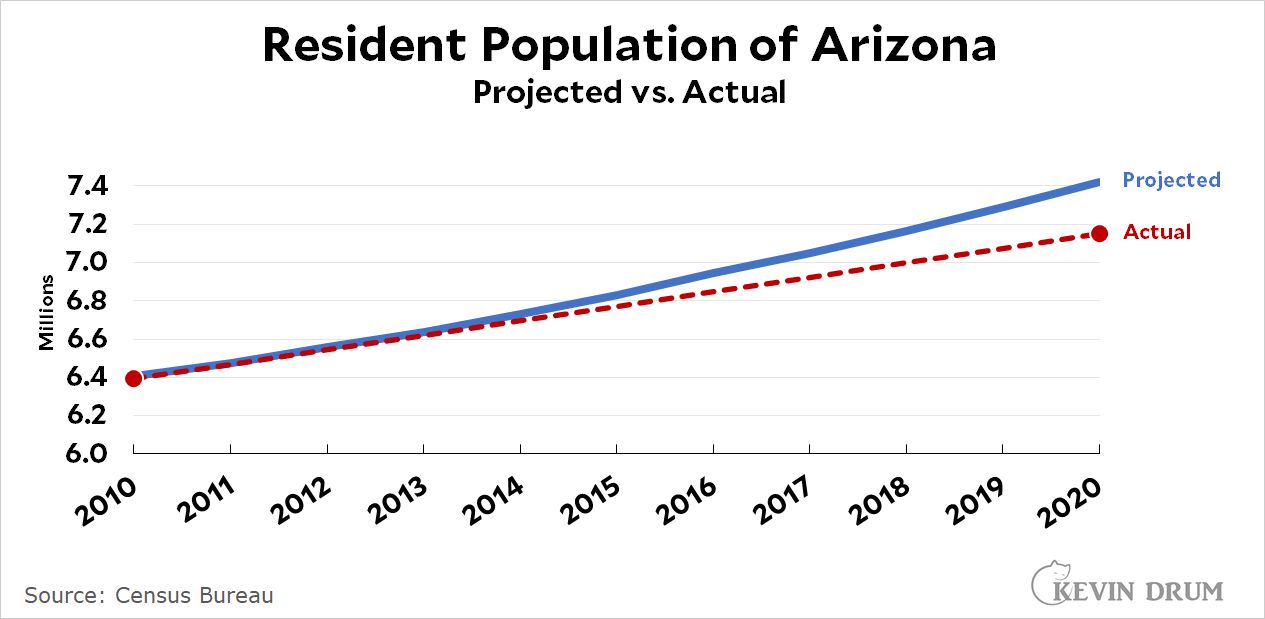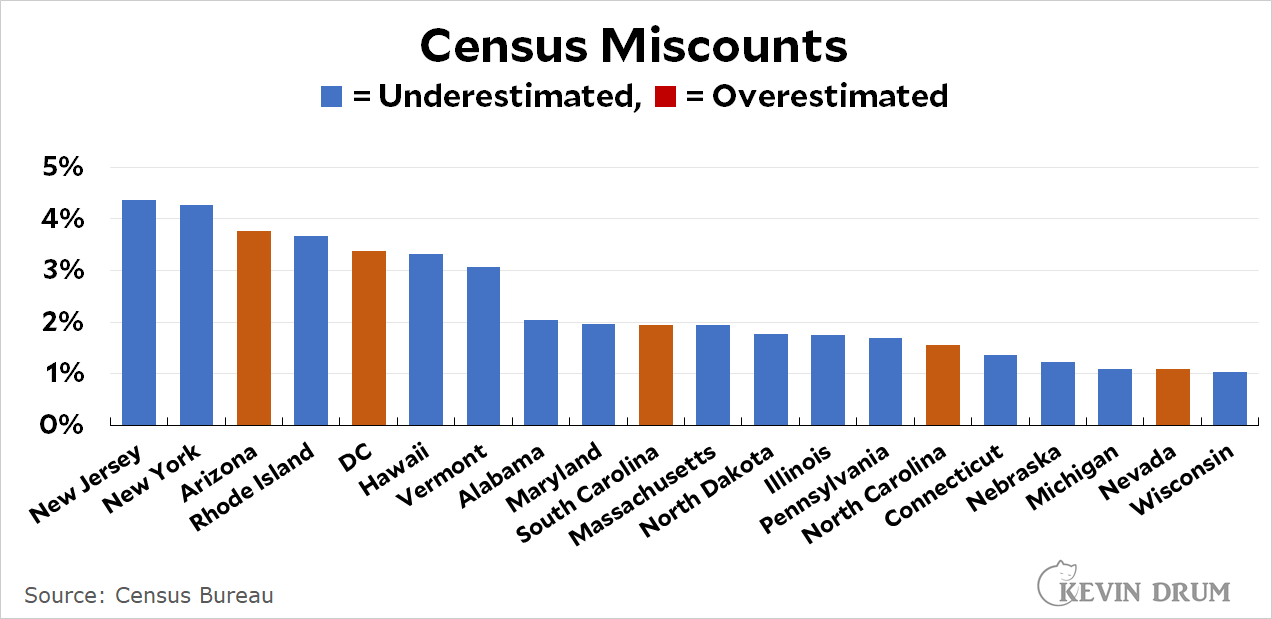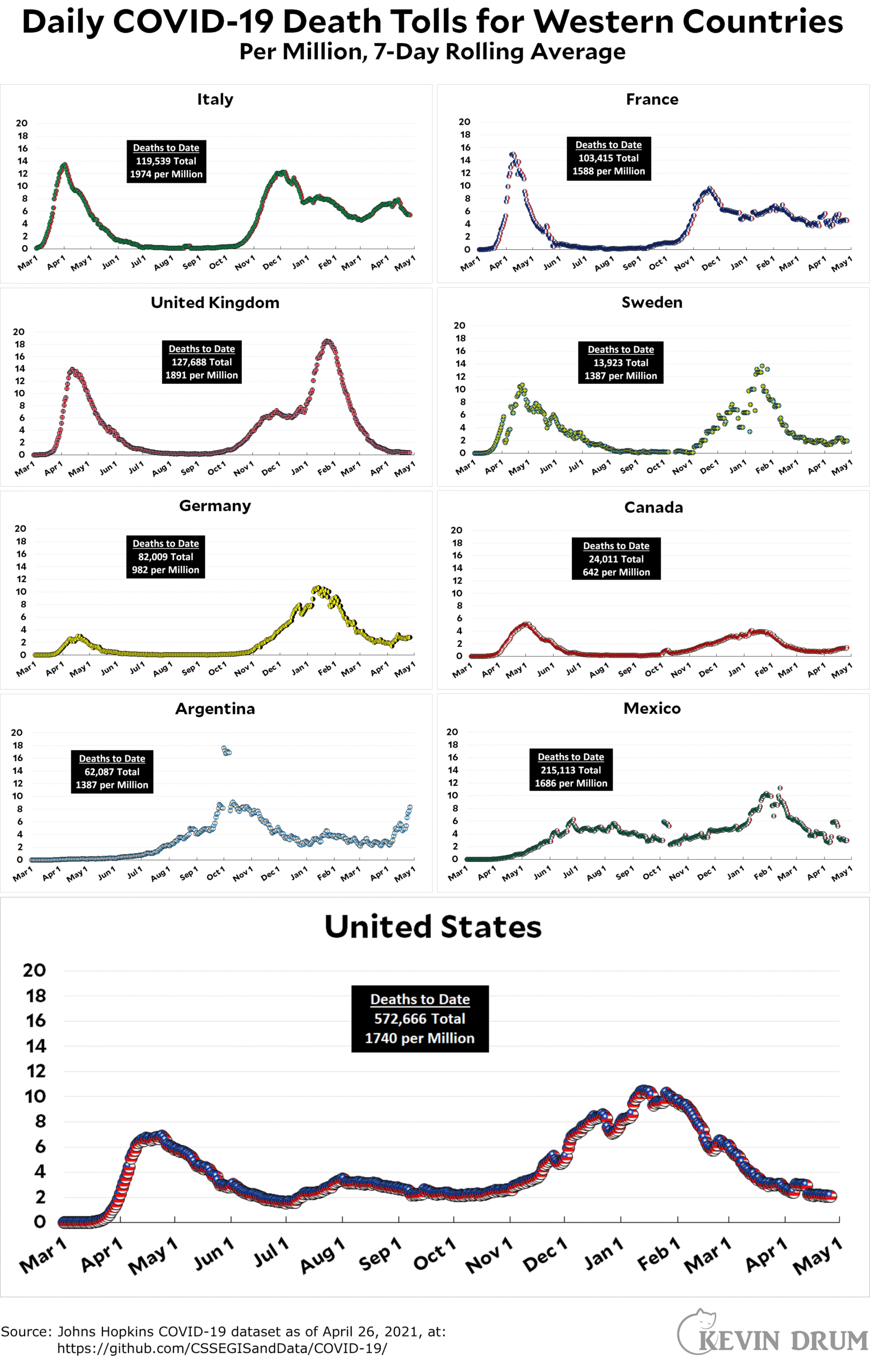Someone on Twitter—sorry, I don't remember who—complained that Joe Biden's speech tonight was a laundry list, the least effective type of speech there is. I'm not so sure about that. I remember all those years of Bill Clinton giving long, laundry-list SOTUs and getting panned by the national press. But the public loved them. I'll bet Biden's version gets pretty good marks too.
In any case, the speech was a laundry list, which is hardly surprising since Biden has a ton of stuff he's proposing these days. And it was fine. Biden ad libbed a few lines here and there to good effect, and there were no miscues or—God forbid—gaffes. It was a workmanlike speech and he delivered it efficiently.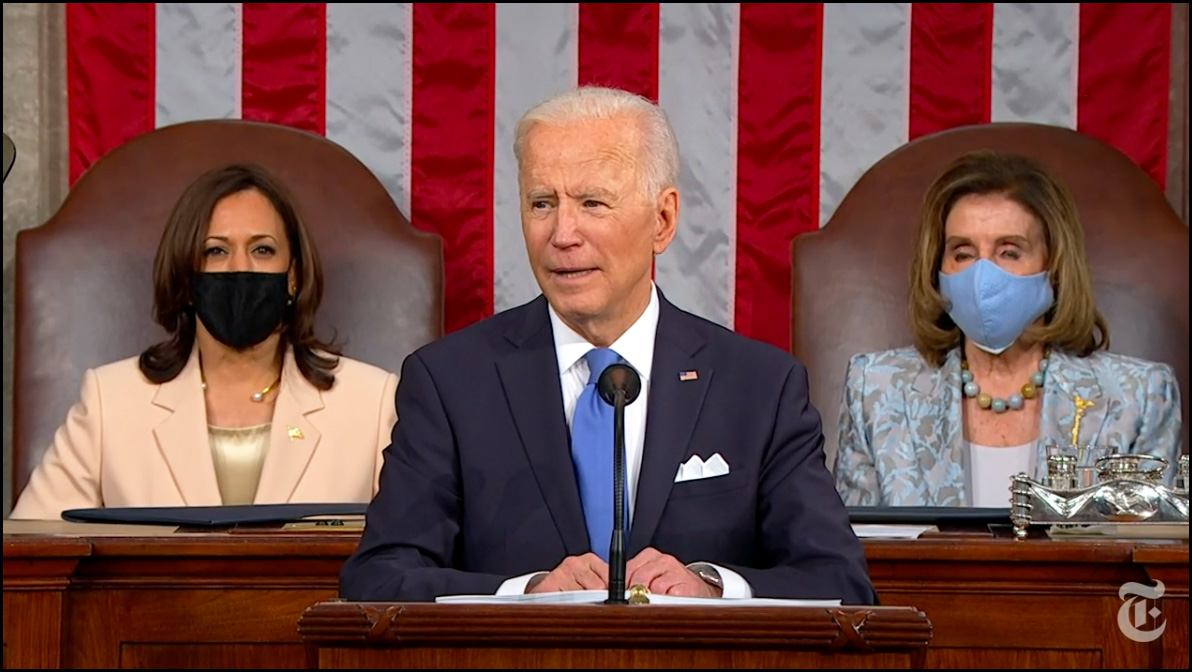
Anyway, that's about it. Biden outlined all the stuff he's been talking about for the past couple of months and he did it without insulting anyone or becoming the face that launched a thousand fact checkers. He stayed focused on jobs, jobs, and more jobs, and promised to build stuff in America instead of China, which I'm sure went over well.
It was, I suppose, a fairly boring speech, but that seems to be Biden's brand these days. After four years of Donald Trump, boring is good. Right?


